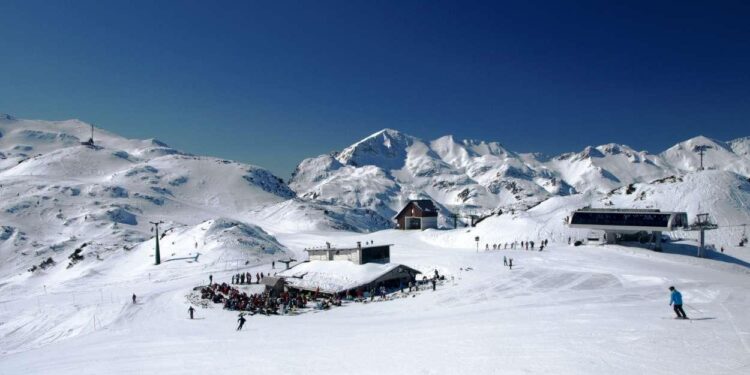Rising costs for ski passes in Italy are sparking concerns that the winter sport may increasingly become a pursuit accessible only to the wealthy, a consumer watchdog has warned. As prices escalate across popular ski resorts, families and casual enthusiasts face the prospect of being priced out, raising questions about the future inclusivity of skiing in a country renowned for its alpine heritage. This development comes amid broader debates over affordability and accessibility in recreational activities, prompting calls for industry and policymakers to address the growing financial barriers.
Italian ski pass price hikes risk excluding middle and low-income families, watchdog finds
The recent surge in Italian ski pass prices has sparked alarm among consumer rights groups, who warn that the increased costs could effectively price out a significant portion of the population. Families from middle and low-income brackets face diminishing opportunities to engage in skiing, traditionally seen as a popular winter pastime and sport. This steep rise threatens to reshape the demographic of alpine tourists, limiting access almost exclusively to affluent visitors and exacerbating socioeconomic divides in the region’s winter sports culture.
According to the watchdog’s analysis, the new pricing structure includes:
- Average increase: 15-25% across major ski resorts
- Peak season hike: Up to 30% higher than last season
- Discount eliminations: Reduced concessions for families and youth
| Income Group | Monthly Ski Pass Cost | Affordability Index* |
|---|---|---|
| Low Income | ‚ā¨150 | 70% |
| Middle Income | ‚ā¨150 | 35% |
| High Income | ‚ā¨150 | 10% |
| *Percentage of monthly income spent on ski pass | ||
Consumer advocates are urging policymakers and resort operators to reconsider the pricing model to preserve winter sports as an inclusive activity rather than an exclusivity reserved for the wealthy. Without corrective measures, there are concerns that Italy’s ski industry could see a decline in attendance diversity, impacting not only cultural participation but also regional economies dependent on vibrant, year-round tourism.
Economic impact of rising costs threatens local tourism and community sustainability
The sharp increase in ski pass prices across Italy’s premier winter resorts has triggered concern among local businesses and community leaders, who warn this trend could significantly undercut the accessibility of skiing for middle- and lower-income families. Beyond just a recreational issue, these hikes threaten the economic fabric of many mountain towns that rely heavily on tourism revenue during the winter months. Smaller hotels, rental shops, and eateries are already reporting a downturn in bookings, attributing it directly to the softened demand caused by rising operational costs and subsequent price inflation for visitors.
Experts and watchdog groups emphasize that such pricing strategies risk creating a tourism environment that favors only affluent customers, diminishing the diversity and inclusiveness that once characterized Italy’s ski culture. This shift not only jeopardizes seasonal employment but also endangers the sustainability of entire local ecosystems. The table below outlines some of the immediate economic repercussions observed in key ski towns since the recent price adjustments:
| Community | Drop in Visitor Numbers (%) | Local Business Revenue Loss (%) | Seasonal Unemployment Rise (%) |
|---|---|---|---|
| Cortina d’Ampezzo | 18 | 22 | 15 |
| Val Gardena | 20 | 19 | 17 |
| Sestriere | 16 | 21 | 14 |
- Increased pass costs: Limiting access for families and casual skiers
- Reduced tourism income: Hurting ancillary businesses dependent on visitor spending
- Higher job insecurity: Threatening seasonal employment stability in mountain regions
Calls for government intervention and affordable pricing strategies to preserve sport accessibility
The sharp increase in Italian ski pass prices has sparked urgent appeals from consumer groups and sports advocates for immediate government action. Stakeholders warn that without intervention, skiing risks becoming a pastime exclusive to affluent individuals, alienating families and young enthusiasts who are priced out of the market. Proposals now emphasize the necessity of subsidies and tiered pricing models to ensure that the sport remains an accessible option across socioeconomic layers. The call is for policymakers to collaborate with ski operators to develop sustainable pricing schemes that balance financial viability with inclusivity.
Among suggested measures are:
- Discounted season passes for youth, students, and low-income households
- Flexible payment options spread over the ski season
- Community outreach programs promoting skiing in underserved regions
- Caps on annual price hikes to prevent sudden affordability shocks
| Measure | Benefit | Potential Challenge |
|---|---|---|
| Discounted Passes | Increases youth participation | Reduced short-term revenue |
| Payment Plans | Spreads financial burden | Additional administrative costs |
| Community Programs | Broadens sport’s reach | Requires sustained funding |
| Price Caps | Ensures affordability | Limits operator profits |
Industry experts highlight that maintaining sport accessibility is crucial not only for public health but for the long-term viability of skiing in Italy. Without strategic government support and innovative pricing, the alpine sector risks alienating a generation of potential enthusiasts, ultimately undermining both cultural and economic benefits intrinsic to the sport.
To Wrap It Up
As costs continue to climb, concerns mount that skiing in Italy may become an exclusive pursuit for affluent visitors, potentially sidelining local communities and younger enthusiasts. Industry stakeholders and policymakers now face mounting pressure to address affordability and accessibility, ensuring that the sport remains open to a diverse range of participants before price barriers become insurmountable. The coming months will be critical in determining whether skiing can maintain its broad appeal or if it risks becoming a pastime reserved for the wealthy few.














